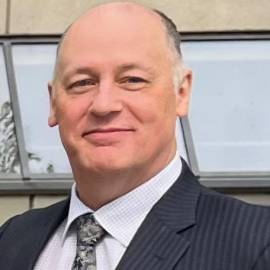- Suite 310 - 1716 16th Avenue NW Calgary, AB, T2M 0L7

Dr. Brenton Crowhurst
Psychologist / Psychotherapist with education and experience you can trust!
A psychologist and psychotherapist based in Calgary, Alberta. He brings to his practice a combination of extensive education and vast knowledge and experience.
We welcome you to take a look at our psychological evaluation page, many times these evaluations make highly valuable contributions to evaluating psychological conditions.
Are you feeling troubled by:
- Worry, anxiety, sadness, depression or other symptoms and problems?
- Relationship problems (either personal or professional)?
- Not functioning or performing efficiently or effectively in life?
- These problems have not gone away with time or the help of others?
We welcome you to take a look at our psychological evaluation page, many times these evaluations make highly valuable contributions to evaluating psychological conditions.

Psychotherapy is a form of treatment for psychological or psychiatric problems (e.g., depression, anxiety, anorexia etc.), interpersonal problems (e.g., difficulty trusting others, loss of sexual desire as emotional intimacy deepens) or individual personal problems (e.g., lack of meaning or satisfaction in life, inability to reach achieve to ones potential).
Psychotherapy is “talk therapy” based in a relationship the client forms with a therapist trained to listen intensively to what is said (and not said) in order to facilitate understanding and changes that resolve problems, remove obstacles to achieving ones potential, and improve personal satisfaction and happiness in life.
Dr. Crowhurst offers private therapy sessions for adults in Calgary. Depression, eating disorders, low self-esteem, anxiety and relationship problems are just a few of the issues that he can aid you in overcoming.
Therapy sessions with Dr. Crowhurst are founded on mutual trust and respect so that you will feel comfortable taking an active role in your recovery. Using his unique approach,
Dr. Crowhurst will patiently and effectively help you overcome your difficulties so that you can:
- Have the motivation to make positive change in your life
- Resolve and overcome the problems that lead to depression, anxiety, eating disorders, low self-esteem and other symptoms and concerns
- Experience greater confidence and satisfaction in life
You can change your life and begin living healthfully and with joy and Dr. Crowhurst can get you there.
- Are you experiencing feelings of worthlessness and despair?
- Are you constantly preoccupied with your weight and taking drastic measures to avoid gaining weight?
- Do you wish that your personal relationships could be more satisfying?
- Do you feel a daily sense of panic and it’s impacting your lifestyle?
What to Expect
Psychotherapy, insight-oriented therapies especially, foster change through exploration and understanding of the dynamics underlying ones problems. The goal is to treat the cause, not manage the effect–to cure the “disease” itself, rather than merely suppress the outward symptoms. For this reason, in the course of psychotherapy, there is rarely much need to talk about symptoms once it has been established what they are. They are merely the effects of the problem, and not the problem itself.
Dr. Crowhurst specializes in an “Object Relations” approach to insight-oriented therapy, which holds to a fundamental assumption that all psychological problems can be understood interpersonally. A second assumption is that “what happens anywhere happens everywhere.” From these assumptions, Dr. Crowhurst expects, first, that the problem dynamics clients experience elsewhere in life will be expressed, in some form, in the therapy relationship itself. With this framework in mind, clients will not hear him utter the stereotypic old line “How does it make you feel?” but, instead, they may hear the new stereotypic line “Where else have you felt like this?” exploring how important reactions in therapy have been experienced in other relationships, and what is their origin.
Psychodynamic therapies, such as Object Relations therapy, are unique in their use of the therapy relationship itself as a living laboratory. It is in this “laboratory” that the therapist and client together can observe client problems in action, to analyze those problems, and then create and practice positive changes. Changes first made in the therapy relationship then generalize to other “real” relationships outside of therapy. In Dr. Crowhurst’s experience, this approach to psychotherapy is the most flexible and most effective way to help with the broad ranging problems and symptoms that clients bring to therapy.
It is an approach that brings a deep experience of transformation with lasting results. Unlike other methods, where the effects are typically confined to a specific and limited problem agenda, clients treated with Object Relations therapy typically report unexpected changes in areas in addition to the problem for which therapy was sought. There is no greater delight for a therapist than hearing, for example, that an unsatisfying marriage has been salvaged, even transformed, when it was an (apparently) unrelated claustrophobia for which treatment was sought.
How My Therapy Works
Live the life you want with help from an educated and experienced Calgary psychologist through psychotherapy.
1
Open Your Heart
It is important that you perceive therapist as a friend and are not afraid of communication
2
Describe a Problem
Feel free to speak about everything that worries you so that I can choose the best solution
3
Understand the Partner
As a result you can make thoughtful decisions about strengthening your relationships
4
Express Emotions
You will learn to recognize all types of emotions, understand their nature and positive effect
Misconceptions
“Ok, doc, like I told you . . . I’m depressed. How do I cope? Give me some strategies to deal with this.”
There are many stereotypes of psychotherapy that are well-known in our culture, yet surprisingly, Canadians are poorly informed about what therapy is actually like. Not a week goes by when Dr. Crowhurst doesn’t hear an appeal similar to the quotation above. It is common to wish that the solutions to life’s problems will turn out to be as effortless as they are profound and transformational.
As noted above, the symptom or surface issue we experience is not identical with the problem that needs to be resolved. Therefore, coping better with the symptom itself, somehow, is not a meaningful approach to finding a “cure.”
If therapy cures by exploring and understanding the dynamics underlying the surface problem or symptoms, it follows (to the surprise of some clients) that they must talk in order to provide the “data” for the analysis and resolution of problems. Clients are encouraged in psychotherapy to speak freely about whatever is in their mind, without hesitation or editing, and this is the same in all sessions, not just the first session.
To find out exactly what sets Dr. Crowhurst apart from other Calgary psychologists, read more about his unique approach.